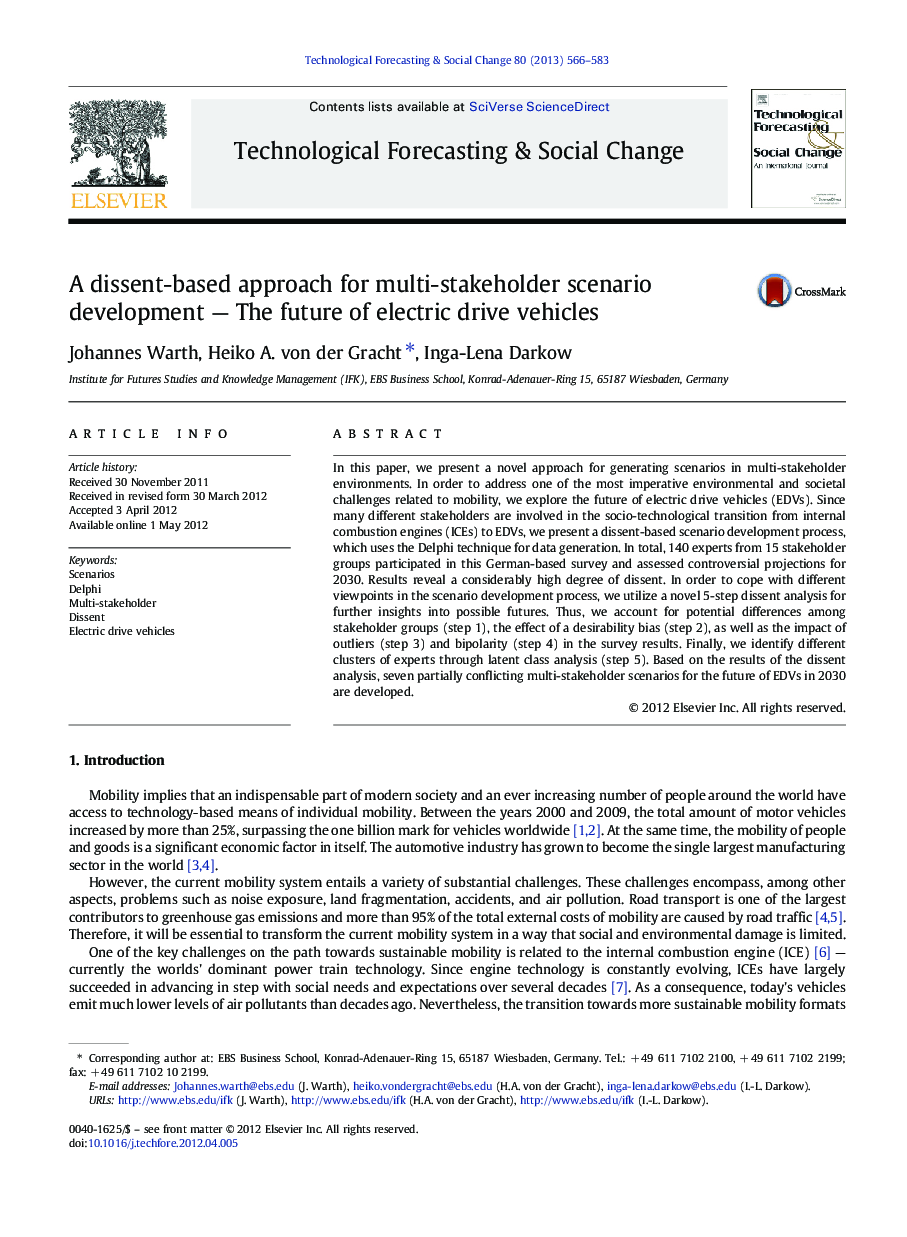| Article ID | Journal | Published Year | Pages | File Type |
|---|---|---|---|---|
| 896712 | Technological Forecasting and Social Change | 2013 | 18 Pages |
In this paper, we present a novel approach for generating scenarios in multi-stakeholder environments. In order to address one of the most imperative environmental and societal challenges related to mobility, we explore the future of electric drive vehicles (EDVs). Since many different stakeholders are involved in the socio-technological transition from internal combustion engines (ICEs) to EDVs, we present a dissent-based scenario development process, which uses the Delphi technique for data generation. In total, 140 experts from 15 stakeholder groups participated in this German-based survey and assessed controversial projections for 2030. Results reveal a considerably high degree of dissent. In order to cope with different viewpoints in the scenario development process, we utilize a novel 5-step dissent analysis for further insights into possible futures. Thus, we account for potential differences among stakeholder groups (step 1), the effect of a desirability bias (step 2), as well as the impact of outliers (step 3) and bipolarity (step 4) in the survey results. Finally, we identify different clusters of experts through latent class analysis (step 5). Based on the results of the dissent analysis, seven partially conflicting multi-stakeholder scenarios for the future of EDVs in 2030 are developed.
► We introduce a novel approach to multi-stakeholder scenario building. ► We assess the future of electric drive vehicles by using a real-time Delphi survey. ► We propose a 5-step dissent analysis to cope with different viewpoints. ► We develop 7 partially conflicting multi-stakeholder scenarios.
